Search Results
Showing results 1 to 11 of 11

From Farm to Table
Source Institutions
In this activity, learners imagine the path their food takes from planting a seed, all the way to sitting on their kitchen counters. Explore concepts for each step food takes to reach your home.
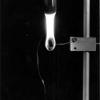
Burn a Peanut
Source Institutions
In this activity, learners burn a peanut, which produces a flame that can be used to boil away water and count the calories contained in the peanut.
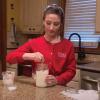
Homemade Butter
Source Institutions
In this activity, learners will turn cream and salt into butter—using marbles. Learners will explore how shaking up fat globules help them create homemade butter.
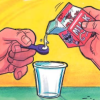
Cheese: Behold the Power of Chemistry
Source Institutions
In this activity on page 7 of the PDF (Get Cooking With Chemistry), learners conduct an experiment to get an idea of how cheese is made.
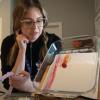
Sweet Speedway
Source Institutions
In this activity, learners test different food items by timing how long it takes each liquid to slide from the top of a ramp to the bottom.
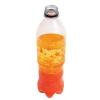
Liquid Lava Layers
Source Institutions
In this activity, learners explore the concepts of density and basic chemical reactions as they create a homemade lava lamp effect using water, oil, food coloring, and Alka-Seltzer tablets.
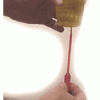
Single Serving Volcanism
Source Institutions
In this activity, learners eat a snack and make a model of the plumbing system of a volcano.
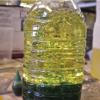
Gassy Lava Lamp
Source Institutions
In this activity, learners use oil, water, food coloring and antacid tablets to create a bubbling lava lamp. Use this activity to introduce concepts related to density, hydrophobicity vs.
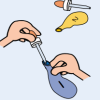
The Nose Knows!
Source Institutions
In this activity on page 9 of the PDF, learners test how flavoring extracts move through the walls of a balloon.
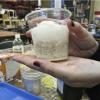
Hot & Cold
Source Institutions
In this activity, learners experiment with hydrogen peroxide, vinegar, yeast, and baking soda to produce hot and cold reactions. Use this activity to demonstrate exothermic and endothermic reactions.
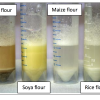
Wheat Evolution: Sedimentation Testing
Source Institutions
In this activity (Page 30 of PDF), learners investigate the evolution of wheat by conducting sedimentation tests on different flours.
